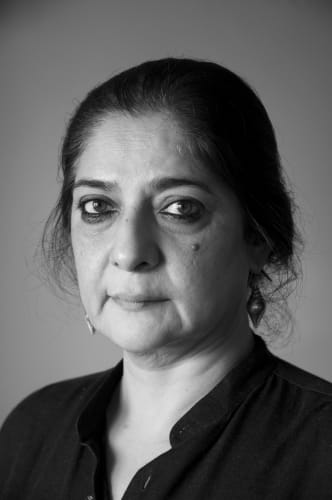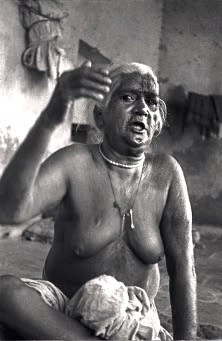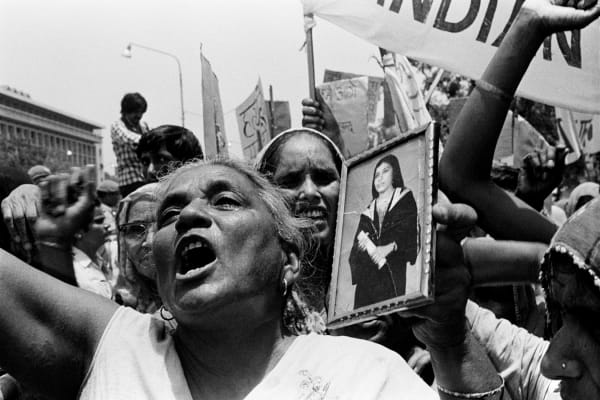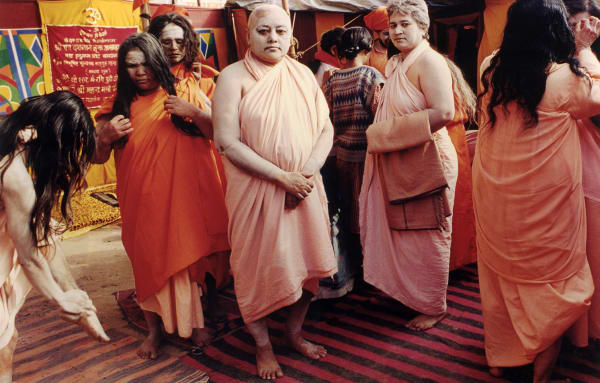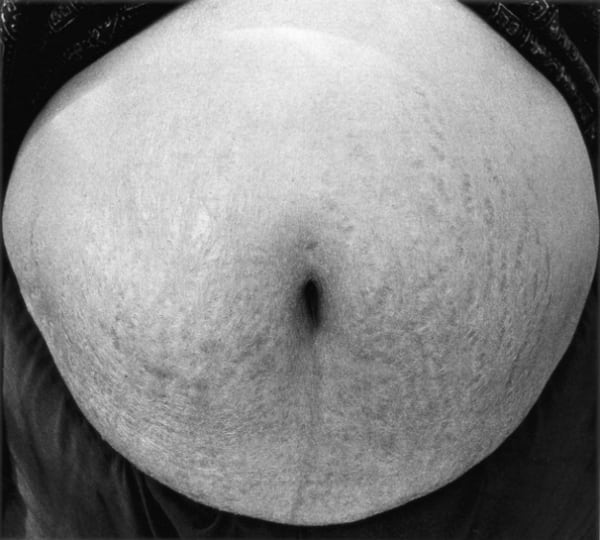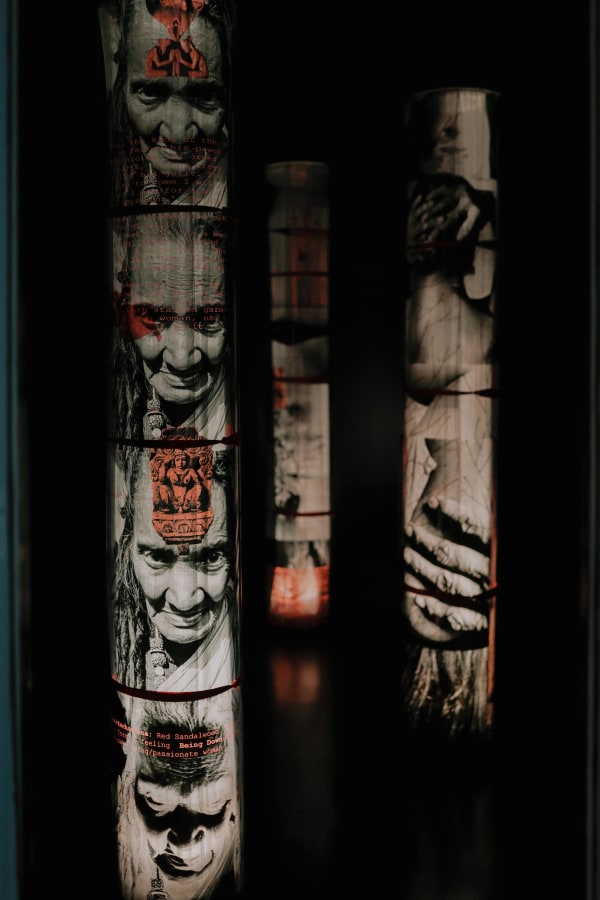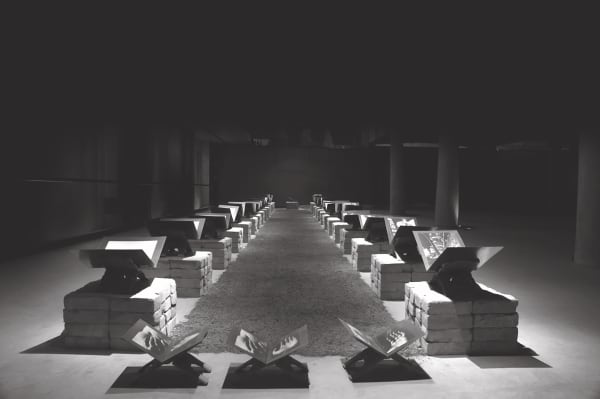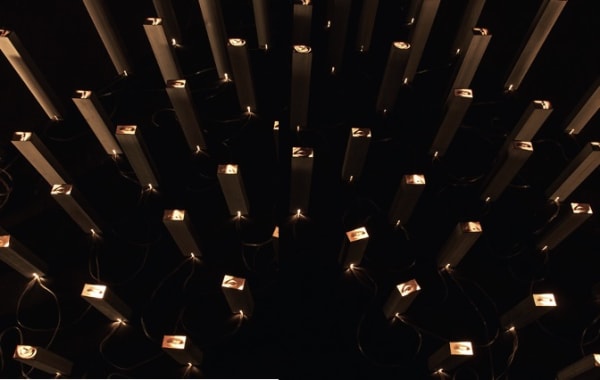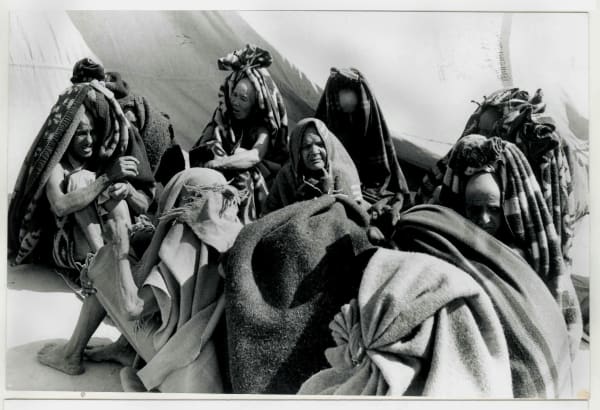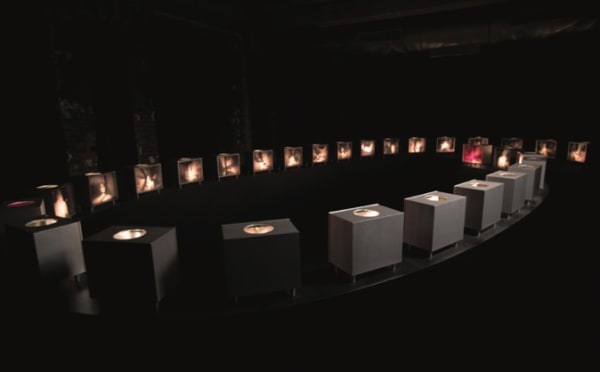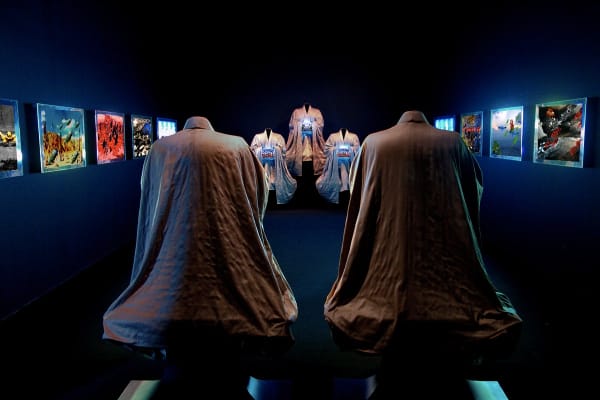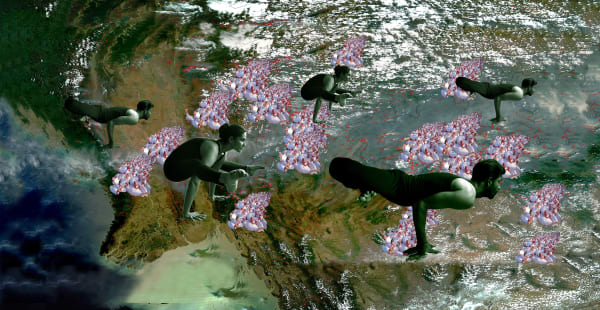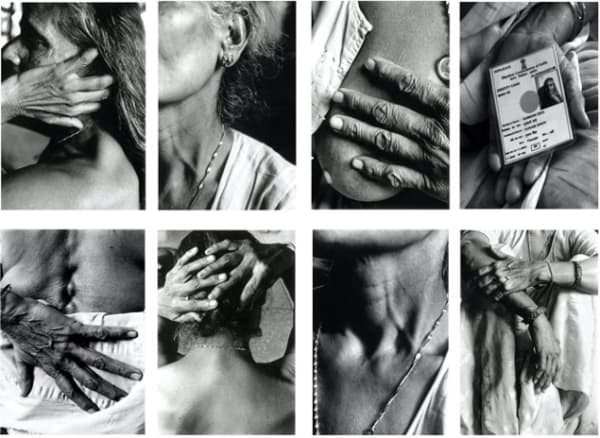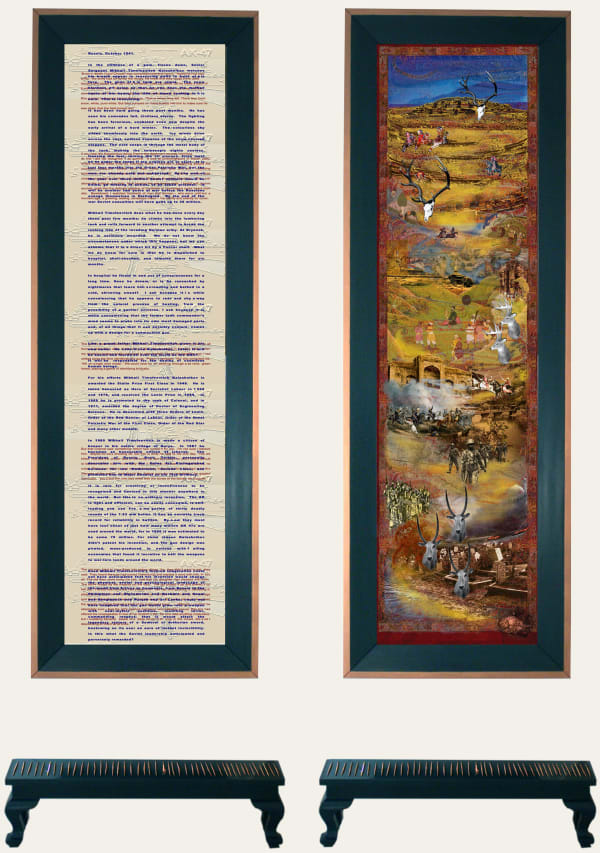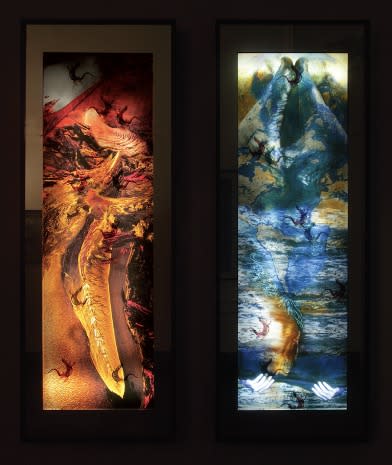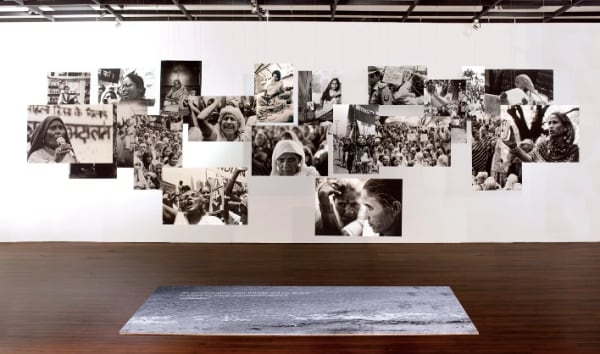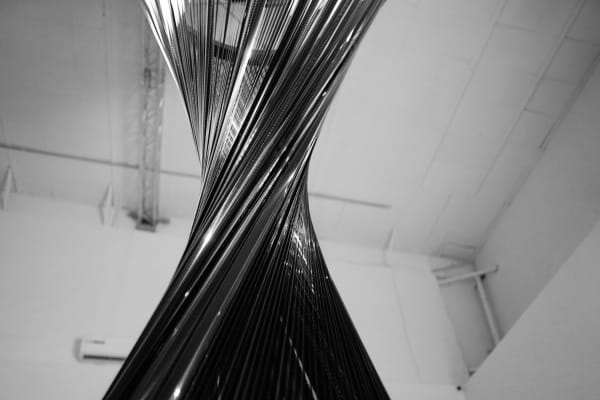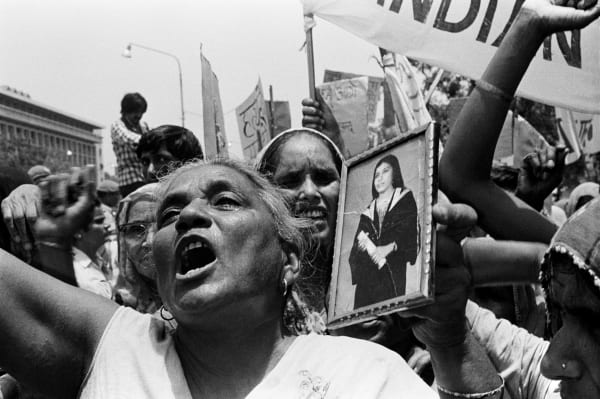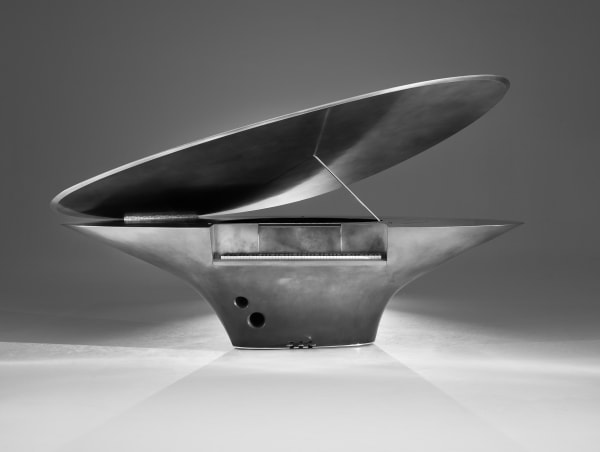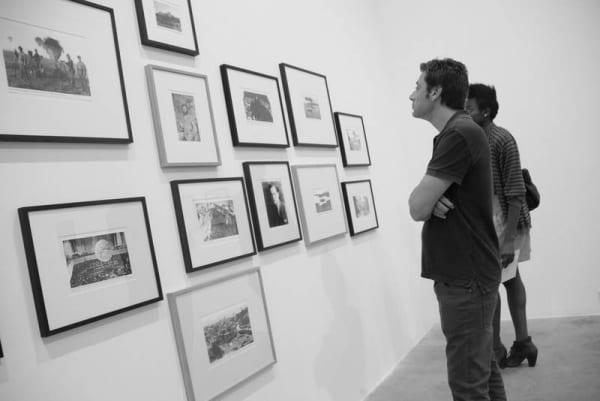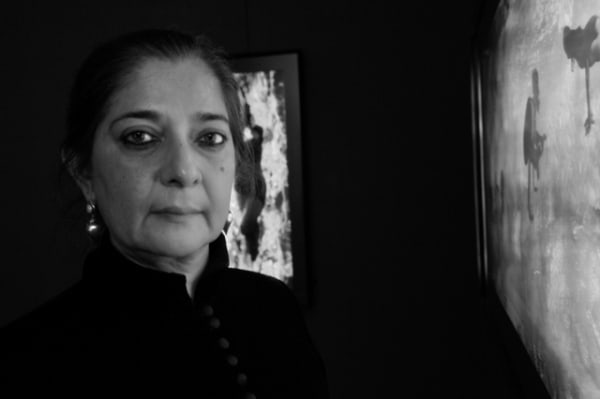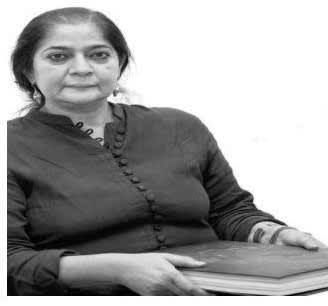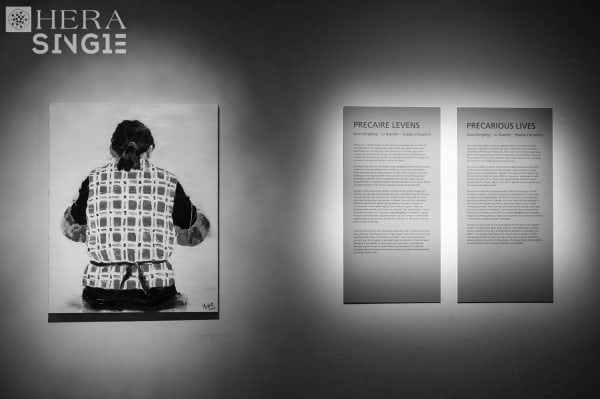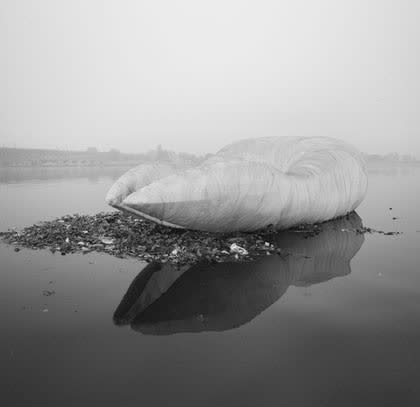Over the last three decades, Sheba Chhachhi has developed an art practice that traverses the fields of documentary and photography, installation and video, as well as new media, creating immersive environments and bringing the contemplative into the political, in both site-specific public art and independent works.
Born in 1958 in Harar, Ethiopia, Sheba Chhachhi returned to India when she was three years old, to continue a peripatetic childhood, moving to a new Indian city every two or three years. Dissuaded from pursuing her interest in the arts by the conventional wisdom of the time, she studied Economics at Delhi University and graduated with honours in 1977. She went on to study at one of the first media studies centres in India, the Chitrabani Centre for Social Communication, Kolkata, set up by the distinguished film scholar Fr. Gaston Roberge in association with Satyajit Ray.
At Chitrabani, exposed to rich and varied thinking and practice in film, photography, theatre, folk and new media, Chhachhi developed analytical frameworks and ways of reading the complex terrain of media and society. Active in theatre and spoken word performance in Delhi University, she continued this engagement in Kolkata, performing in stage productions and participating in physical theatre and actor training workshops with Badal Sircar and Deepak Majumdar amongst others, as well as researching rural performance practices, especially of the Bauls. She then trained in visual communication at the National Institute of Design (NID), Ahmedabad, with a focus on graphic design and photography.
In 1980 Sheba Chhachhi co-founded, with Jogi Panghaal, ‘Lifetools’ in New Delhi: a research-oriented media and design practice committed to socially useful design, working with and for urban and rural communities, activist groups and people’s movements. Deeply engaged with the women’s movement in India as both an activist and a documentary photographer, she built an archive across the 1980s.
Founder-member of the Saheli collective and co-founder of Jagori, a women’s resource and communication centre, she was part of a network of feminists conducting workshops with rural and urban women’s groups in India and South Asia for about a decade. She was also part of a group of architects and planners developing alternative urban models, and a co-founder of GREHA, a non-profit society for research on environmental development, habitat design and architecture.
By 1990, Sheba Chhachhi began working as an independent artist, experimenting with sculpture and ceramics, and staged collaborative photography. She trained at the Triveni Kala Sangam, New Delhi, Andretta Potteries, Himachal Pradesh and the Frei Akademi, Den Haag, Netherlands. In 1993, she was among the first few Indian artists to produce installation art. She has created a number of large photo-based installations incorporating light, sound and the moving image, and pursued long-term photography projects such as on women-ascetics and the female body.
Chhachhi experiments across the spectrum of durational mediums from pre-cinematic animated lightboxes to virtual reality interactivity, as well as in diverse sites: community centres, galleries, shopping malls, public institutions. These experiments are marked by a special interest in exploring relationships with viewers/participants.
Since 1999, public art interventions have been a significant aspect of her work.
Sheba Chhachhi has published articles, and conducted workshops, research and projects in both institutional and non-formal contexts. She has given talks and presented papers at universities, museums, cultural centres and biennales, both nationally and internationally. She was a Townsend Fellow at University of California, Berkeley in 2005; visiting faculty at Ambedkar University Delhi in 2012; and Visiting Research Professor, Mario Miranda Chair at School of Architecture, University of Goa in 2015. She was awarded the Juror’s Prize for contemporary art in Asia by the Singapore Art Museum in 2011. Sheba Chhachhi lives and works in New Delhi.
-

Museum of Modern Art and the Metropolitan Museum of Art acquire Sheba Chhachhi's 'Seven Lives and a Dream'
March 27, 2024Volte Art Projects is proud to announce the acquisition of our represented artist - Sheba Chhachhi's, 'Seven Lives and a Dream' by the MoMA and...Read more -

Here's why art lovers and foodies should visit Alserkal Lates this week
September 19, 2021 Read more -

This One-of-A-Kind Dubai Gallery Ups The Ante on Collectable Art And Design
September 16, 2021 Read more -

Last Chance Sublime Convergence: Art, Nature and Technology
September 16, 2021 Read more -

What to see at Alserkal Lates as galleries night returns to Dubai's Al Quoz
September 14, 2021 Read more -

An entrepreneur Tushar Jiwarajka brings Mumbai Volte Art Projects to Dubai
September 2, 2021 Read more -

Mumbai's Volte Art Projects aims to bring blockbusters to Dubai
July 31, 2021Alserkal Avenue is welcoming a new gallery to its roster: Mumbai's Volte Art Projects. Starting in September, the gallery which shows a mix of international...Read more -

MMCA looks upon 20 year history in 'the square'
November 14, 2019 Read more -

PHOTOGRAPHS ENLIVEN THE PUBLIC AND HISTORIC SPACES OF AN INDIAN CITY
March 21, 2019 Read more -

INTRODUCING SHEBA CHHACHHI - TATE SHOTS
February 1, 2019 Read more -

INDIAN PHOTOGRAPHER, WOMEN’S RIGHTS ACTIVIST AND INSTALLATION ARTIST SHEBA CHHACHHI HAS BEEN AWARDED THE SECOND PRIX THUN FOR ART AND ETHICS.
August 25, 2017 Read more -

SHEBA CHHACHHI TALKS ABOUT WHAT KEPT HER VISION ALIVE OVER 40 YEARS AND WHY SHE PREFERS TO BE A ‘CITIZEN ARTIST’
July 16, 2017 Read more -

INDIAN ARTIST AND FEMINIST SHEBA CHHACHHI TO GET PRIX THUN FOR ART AND ETHICS AWARD
June 18, 2017 Read more -

PHOTOGRAPHER SHEBA CHHACHHI ON WHY WOMEN NEED THEIR OWN DAY OF SOLIDARITY
March 8, 2017 Read more -

BOOK OF REASONS
March 5, 2017 Read more -

MIGRANT MOMENT
January 20, 2017 Read more -

ART EXHIBITION AT THE VOLKENKUNDE MUSEUM, LEIDEN
September 15, 2016 Read more -

FROM HERE TO HEREAFTER
March 12, 2016 Read more -

THE WORLD IS FLAT
March 11, 2016 Read more -

A RIVER OF MEMORIES
November 26, 2011 Read more

